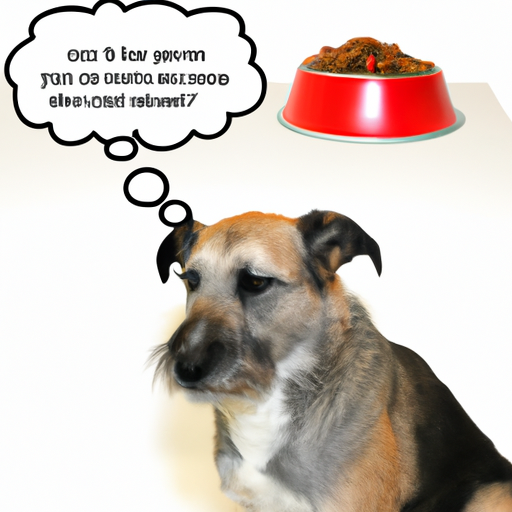As responsible pet parents, we’re always seeking the best ways to care for our furry companions. One of the most significant decisions we make for them is about their diet. The market is flooded with various types of pet foods, but kibble, or dry dog food, is one of the most popular choices due to its affordability and convenience. However, research and experts suggest that kibble may not be the most nutritious option for our dogs. But why? Let’s delve into the reason why kibble may be bad for dogs.
Table of Contents
- What is Kibble?
- The Problems with Kibble
- Alternatives to Kibble
- FAQs
Key Takeaways
- Kibble often contains low-quality ingredients and fillers
- The high heat processing of kibble can destroy nutrients
- Kibble can lead to dehydration and other health issues
- Alternatives to kibble are available and can provide better nutrition for dogs
What is Kibble?
Kibble is a type of dog food that has been cooked and dried. It’s typically made from a mix of ingredients like meat, grains, and vegetables, which are ground together and then shaped into small, dry pellets. Because of its long shelf life and easy storage, kibble is a go-to option for many dog owners. However, the convenience of kibble may come at the cost of your dog’s health.
The Problems with Kibble
To understand why kibble might be bad for dogs, we need to look into its manufacturing process and the ingredients used. Here are some reasons why kibble may not be the best choice for your dog’s diet:
Low-Quality Ingredients and Fillers
Many commercial kibble brands use low-quality meat or meat by-products, which are parts of an animal that aren’t typically consumed by humans (like organs, bones, or even feathers in some cases). Additionally, many kibbles contain high amounts of carbohydrates in the form of grains or fillers, such as corn, soy, or wheat. These fillers may lead to weight gain and other health issues. You can learn more about the impact of fillers on pet health here.
High Heat Processing
Kibble is cooked at high temperatures to kill bacteria and ensure a longer shelf life. However, this high heat processing can destroy many of the nutrients in the food, leading to a less nutritious meal for your dog. To combat this, manufacturers often add synthetic vitamins and minerals back into the food, but these are not as easily absorbed as those from natural sources.
Dehydration and Dental Issues
As a dry food, kibble doesn’t provide any hydration for your dog. This can lead to dehydration, especially if your dog isn’t drinking enough water. Moreover, contrary to popular belief, kibble doesn’t clean your dog’s teeth. The small, hard pellets don’t provide enough abrasion to effectively clean teeth and can actually lead to dental issues.
Alternatives to Kibble
If you’re concerned about the potential negative effects of kibble on your dog’s health, there are alternatives available. You could consider home-cooked meals, raw diets, or high-quality canned food. These options often contain better quality ingredients and more moisture. However, it’s important to consult with a vet before changing your dog’s diet. You can find some useful tips on transitioning to a new diet on One Top Dog.
Frequently Asked Questions
1. Is kibble bad for all dogs?
While many dogs can experience the negative effects of kibble, some dogs may not show any adverse reactions. Every dog is unique, and what works for one might not work for another. It’s always best to consult with a vet or a pet nutritionist.
2. How can I tell if my dog is reacting negatively to kibble?
Signs that your dog may not be doing well on a kibble diet include frequent vomiting or diarrhea, excessive gas, skin conditions (like dry, itchy skin or dull coat), and persistent weight gain.
3. What are some signs of good health in a dog?
A healthy dog will have clear eyes, a shiny coat, good energy levels, and consistent, firm stools. Regular check-ups with the vet will also help ensure that your dog is in the best possible health.
In conclusion, while kibble might be a convenient option, it’s important to understand the potential downsides and consider healthier alternatives. After all, our dogs depend on us to make the best choices for their health and well-being. Let’s make sure we’re doing all we can to give them the long, happy, healthy lives they deserve.
For more detailed information on dog health and nutrition, check out our articles on One Top Dog, Benefits of Raw Diets, and Choosing the Right Dog Food.



